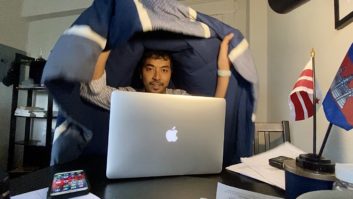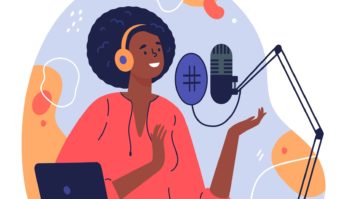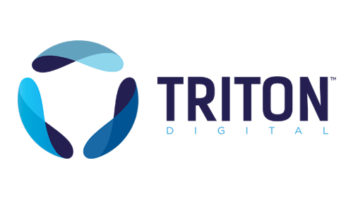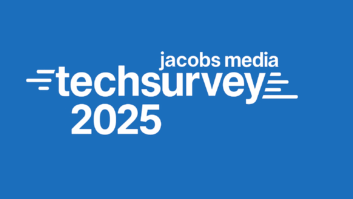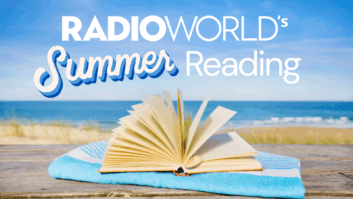Podcasting seems to be the buzzword on radio these days, and the legal issues covering this new technology are in a Wild, Wild West stage that probably won’t last. Carly Didden, an associate in the communications group of Garvey Schubert Barer, lays out the basics for stations to consider before they delve into this technology.
Think of podcasting as TiVo for radio. Just as TiVo allows a viewer to watch his favorite television program or movie when he has the time, podcasting automatically downloads audio files to a user’s computer for listening at the user’s convenience. A podcast is an audio file archived on the Internet in such a way that it can be automatically accessed by a personal computer, downloaded and transferred to a portable MP3 player, such as an iPod.
While they are usually in a talk show format, podcasts may also be music or audio clips from television programs, movies, chat groups, daily horoscopes or lectures. Most podcasts are freely available on the Internet and do not contain commercials or advertisements.
Podcasts are technologically unlike Webcasting or streaming. While Webcasting is an Internet stream of a live or online simulcast of a broadcast signal, a podcast is a download of a non-live audio program. Streaming is one technology for downloading and accessing a stream of electronic information at the same time.
Podcasting is the downloading of a single complete audio file to be listened to at a later time. Because of these differences, copyright licensing for podcasting is different than the copyright regimes for Webcasting and streaming. Indeed, copyright law has yet to catch up with the technology of podcasting.
Questions
Who can podcast? – Anyone who has bandwidth, a Web site, a computer with a microphone and necessary software can podcast. Podcasting software and podcasts are widely available on the Internet. Examples of some sites are www.ipodder.net , www.podcaster.net , www.podcasts.org , www.ipodder.org , www.podfeeder.com and www.audible.com
Podcasting is based on open standards so podcasts can be downloaded on any type of computer and played on any MP3 player or computer audio program that recognizes Real Simple Syndication (RSS) feeds or MP3 files.
Radio stations and content providers are taking notice of podcasting and making their own content available on the Internet. Within the last few months, for example, NPR, the BBC and a number of local radio stations have started to package their on-air programming into podcasts.
Traditional broadcasters and programmers are beginning to realize that providing “a podcast a day” can draw listeners to their Web sites and introduce listeners to new music.
Copyright law
Copyright law protects musical and spoken compositions, or “works”; the performance of a work preserved in a sound recording; and the sound recording itself.
Podcasting implicates these in three ways: the performance of a work; the playing of a recording of a performance; and the reproduction of a recording by incorporating it into a podcast. The law is well settled only as to the first of these.
* Musical works – Performance rights organizations (ASCAP, BMI and SESAC) handle copyright licenses for the performance of musical works, including their performance in a podcast. Separate licenses are necessary from each performance rights organization because each company represents different publishers of composers’ musical works.
* Sound recordings – Copyright licenses for the playing (or “performance”) of sound recordings historically have been handled directly with the owners of the works, usually record companies.
Over-the-air broadcasters are not required to obtain copyright licenses for playing sound recordings. They must, however, hold licenses for playing the underlying musical works.
Under amendments to the Copyright Act in 1995 and 1999, Congress enacted a statutory license scheme for the digital transmission of musical works and sound recordings. However, the statutory licenses reflect the technology of the times.
The 1995 legislation covered downloadable music files, such as the commercial sale from a Web site of an MP3 file. The 1999 act reached Web casting and streaming, both non-interactive activities that involve the transmission of a sound recording, but not the distribution of a reproduction of that recording.
* Reproduction – By contrast to Web casting, a podcast may include a reproduction of a sound recording. Podcasting is an interactive activity that results in the transmission of a sound recording that is fixed and is accessible on demand by the user.
The reproduction requires clearances or licenses, both for the sound recording, and for the musical work. Although the performance rights societies offer licenses to cover the musical works in a podcast, no uniform or industry-wide licensing scheme has been developed to cover the sound recording.
This leaves the podcaster with a choice: to attempt to obtain licenses from the record companies or to limit podcasts to sound recordings not subject to copyright protection. Generally, these include U.S. recordings pressed before Feb. 15, 1972 although a CD reissue of a pre-1972 recording is a new, protected, sound recording. Podcasters may decide to eliminate sound recordings altogether from podcasts.
Do I need all these licenses? – Yes. The owners of copyrights in musical works and sound recordings are entitled to compensation for the performance and reproduction elements of podcasting. However, the challenge to meeting copyright obligations is that the law lags the technology.
What if I get caught without one? – The performance rights organizations, RIAA and others monitor the Internet for Web sites with music. They may begin to do the same with podcasters.
If your podcast is identified, they may locate you and request proof of your licensing. It is in your best interests to cooperate with the organizations.
If you do not have a license, the performance rights organizations will work with you to get a license. If you fail to respond to the organizations, they are likely to send you a cease and desist letter demanding removal of the infringing material from your podcast.
If you do not cooperate voluntarily, they may sue you in court. Remember that the cost of a lawsuit will far exceed the cost of a license.
If you are caught, remove the infringing content and get licensed. If you do not remove the infringing content, the fines for copyright infringement may be multiplied.
But my podcast is talk-only. – If a broadcast station conducts a live interview on-air or a podcaster records an interview or discussion group for posting as a podcast, the station or podcaster should make sure to receive permission from the guest to convert the interview to a podcast. Conducting an on-air or in-person interview does not necessarily give permission to convert the interview to a podcast.
In order to get that permission, broadcasters should have the guest sign a release, a short legal document that waives a person’s right of privacy, which is the right to be left alone, or the right of publicity, the right to control how one’s image, voice or persona is used to sell things. Failure to obtain a person’s permission or a release to podcast an interview could be a violation of his or her publicity and performance rights.
Stations should review their programming contracts to determine if podcasting is a right that was included in their syndication agreement. Many syndication agreements give only broadcast rights, and reserve all other rights.
This means that a station may need to acquire an additional license from the syndicator in order to convert its on-air broadcasts to podcasts.
Future developments
Today podcasts are free to download, may be commercial-free, and are unregulated. In the future, at the risk of turning away listeners, podcasters may add commercials or charge fees in order to pay for bandwidth or copyright licenses.
To date, there has been little copyright enforcement by the performance rights organizations over podcasting. As the popularity of podcasting increases, however, it is fair to assume the performance rights organizations and the record companies, or their industry arm, the Recording Industry Association of America, will more actively enforce their copyrights.
This has been the case with file-swapping programs. Initially there was little enforcement, but that changed once the popularity of such programs as Napster and Kazaa increased.
Improvements in podcasting software will increase audio quality. With the rising popularity of podcasting, expect more sophisticated tools and software to be developed. This will make it easier to download higher-quality podcasts and perhaps attract greater attention from the performance rights organizations.
Because podcasting is an Internet rather than a broadcast service, it is not regulated by the FCC. This means that no license is required and that podcasts may contain content that is uncensored for language or subject matter.
Future podcasts may be required or strongly encouraged to carry rating information or warnings on RSS feeds to alert listeners that the podcast content exceeds certain thresholds. It is likely that, eventually, the FCC or the courts will be called upon to determine what broadcasting rules, if any, apply to podcasting.
In time, the law will catch up with technology, and podcasters will have clearer guidance on copyright licensing requirements. For now, the best course of action is to monitor copyright developments and to take affirmative steps to comply.
The information presented here is intended solely for informational purposes and is of a general nature that cannot be regarded as legal advice. Consult an attorney if you have questions about the application of copyright law to podcasting. My thanks to John Crigler and John Wells King for their expertise and assistance in this article.
Reach the author at (202) 965-7880 or [email protected]. This article appeared in the College Broadcasters’ newsletter and is reprinted with permission.
